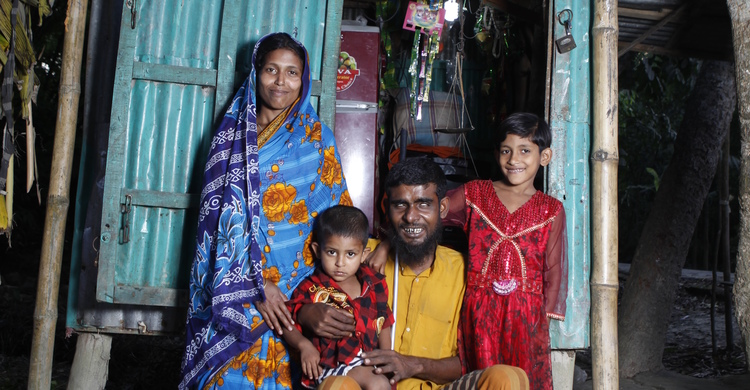
Hazrat Bilal from Narshingdi, Bangladesh, has been blind since birth, but it was only in 2008 at the age of 33, with support from Bangladeshi charity Action for Blind Children, that he was officially registered as permanently disabled. That led to more support from services for the visually impaired; Hazrat got to know other people with sight problems and began to gain confidence.
The 39-year-old now runs his own grocery shop and has helped form a self-help group. It was only after help from the local charity, a partner of international charity Sightsavers, that his life was transformed but if more international development and aid plans were disability-inclusive, there would be many more stories like Hazrat’s.
One billion people all over the world – 15 per cent of the population – have a disability, according to the World Health Organisation. Of that total, 80 per cent live in developing countries.
Despite the fact that one of the eight Millennium Development Goals that world leaders agreed in 2000 was that every child should have a full primary education by 2015, more than a third of the 57 million children worldwide missing out on school have disabilities (see this stunning picture story about blind schoolchildren in Uganda). It seems incredible but disability was not included in the Millennium Development Goals.
Disabilities contribute to global economic, political and social development but it is well documented that development programmes overlook disability issues. That may change if a new report by the International Development Select Committee on disability and development has any impact. Today’s report urges the Department for International Development (DFID) to strengthen its work to include people with disabilities and calls for a focus on disability as a development issue.
The report’s recommendations echoes some of the actions outlined in international charity Sightsavers’ Put Us in the Picture campaign. Launched last year, the campaign calls on policymakers and politicians to include disabled people in international aid and development plans, highlighting the links between disability and poverty.
Specifically, the campaign says the government must ensure people with disabilities participate in, and benefit from, international development programmes and must talk, listen to and work with people with disabilities and their families. It also argues that DFID staff should be trained to include people with disabilities in their work.
You can support the Put Us in the Picture campaign here or follow it on Twitter with the hashtag #InThePicture

One thought on “Development and disability: new report urges action”